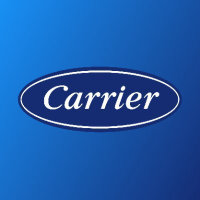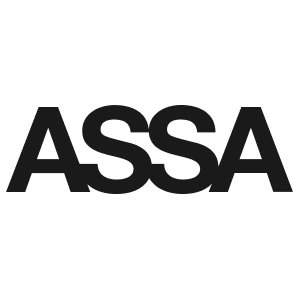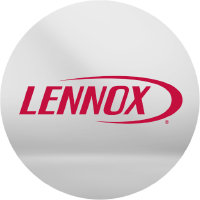
Dormakaba Holding AG
SIX:DOKA

Profitability Summary
Dormakaba Holding AG's profitability score is 56/100. We take all the information about a company's profitability (such as its margins, capital efficiency, free cash flow generating ability, and more) and consolidate it into one single number - the profitability score. The higher the profitability score, the more profitable the company is.

Score
We take all the information about a company's profitability (such as its margins, capital efficiency, free cash flow generating ability, and more) and consolidate it into one single number - the profitability score. The higher the profitability score, the more profitable the company is.
We take all the information about a company's profitability (such as its margins, capital efficiency, free cash flow generating ability, and more) and consolidate it into one single number - the profitability score. The higher the profitability score, the more profitable the company is.

Score

Score
Margins
Profit margins represent what percentage of sales has turned into profits. Simply put, the percentage figure indicates how many cents of profit the company has generated for each dollar of sale.
Profit margins help investors assess if a company's management is generating enough profit from its sales and whether operating costs and overhead costs are being contained.
Earnings Waterfall
Dormakaba Holding AG

|
Revenue
|
2.9B
CHF
|
|
Cost of Revenue
|
-1.7B
CHF
|
|
Gross Profit
|
1.2B
CHF
|
|
Operating Expenses
|
-901.3m
CHF
|
|
Operating Income
|
264.1m
CHF
|
|
Other Expenses
|
-196.4m
CHF
|
|
Net Income
|
67.7m
CHF
|
Margins Comparison
Dormakaba Holding AG Competitors

| Country | Company | Market Cap |
Gross Margin |
Operating Margin |
Net Margin |
||
|---|---|---|---|---|---|---|---|
| CH |

|
Dormakaba Holding AG
SIX:DOKA
|
3.3B CHF |
40%
|
9%
|
2%
|
|
| US |
F
|
Fortune Brands Home & Security Inc
LSE:0IRN
|
823.2B USD |
46%
|
16%
|
9%
|
|
| IE |

|
Trane Technologies PLC
NYSE:TT
|
96.8B USD |
36%
|
18%
|
14%
|
|
| IE |

|
Johnson Controls International PLC
NYSE:JCI
|
69.2B USD |
38%
|
13%
|
11%
|
|
| FR |

|
Compagnie de Saint Gobain SA
PAR:SGO
|
48.7B EUR |
28%
|
11%
|
6%
|
|
| US |

|
Carrier Global Corp
NYSE:CARR
|
57B USD |
28%
|
12%
|
18%
|
|
| JP |

|
Daikin Industries Ltd
TSE:6367
|
5.9T JPY |
34%
|
8%
|
6%
|
|
| SE |

|
Assa Abloy AB
STO:ASSA B
|
366.1B SEK |
42%
|
15%
|
10%
|
|
| CH |

|
Geberit AG
SIX:GEBN
|
21B CHF |
73%
|
25%
|
20%
|
|
| US |

|
Lennox International Inc
NYSE:LII
|
21.5B USD |
33%
|
20%
|
15%
|
|
| US |

|
Carlisle Companies Inc
NYSE:CSL
|
17B USD |
37%
|
21%
|
16%
|
Return on Capital
Return on capital ratios give a sense of how well a company is using its capital (equity, assets, capital employed, etc.) to generate profits (operating income, net income, etc.). In simple words, these ratios show how much income is generated for each dollar of capital invested.




Return on Capital Comparison
Dormakaba Holding AG Competitors

| Country | Company | Market Cap | ROE | ROA | ROCE | ROIC | ||
|---|---|---|---|---|---|---|---|---|
| CH |

|
Dormakaba Holding AG
SIX:DOKA
|
3.3B CHF |
27%
|
4%
|
25%
|
11%
|
|
| US |
F
|
Fortune Brands Home & Security Inc
LSE:0IRN
|
823.2B USD |
17%
|
6%
|
13%
|
9%
|
|
| IE |

|
Trane Technologies PLC
NYSE:TT
|
96.8B USD |
39%
|
14%
|
27%
|
18%
|
|
| IE |

|
Johnson Controls International PLC
NYSE:JCI
|
69.2B USD |
14%
|
5%
|
8%
|
6%
|
|
| FR |

|
Compagnie de Saint Gobain SA
PAR:SGO
|
48.7B EUR |
12%
|
5%
|
12%
|
8%
|
|
| US |

|
Carrier Global Corp
NYSE:CARR
|
57B USD |
28%
|
10%
|
9%
|
5%
|
|
| JP |

|
Daikin Industries Ltd
TSE:6367
|
5.9T JPY |
10%
|
5%
|
12%
|
8%
|
|
| SE |

|
Assa Abloy AB
STO:ASSA B
|
366.1B SEK |
14%
|
7%
|
14%
|
8%
|
|
| CH |

|
Geberit AG
SIX:GEBN
|
21B CHF |
71%
|
26%
|
43%
|
31%
|
|
| US |

|
Lennox International Inc
NYSE:LII
|
21.5B USD |
113%
|
24%
|
49%
|
30%
|
|
| US |

|
Carlisle Companies Inc
NYSE:CSL
|
17B USD |
31%
|
13%
|
20%
|
17%
|
Free Cash Flow
Free cash flow (FCF) is the money a company has left over after paying its operating expenses and capital expenditures. The more free cash flow a company has, the more it can allocate to dividends, paying down debt, and growth opportunities.
If a company has a decreasing free cash flow, that is not necessarily bad if the company is investing in its growth.

















































 You don't have any saved screeners yet
You don't have any saved screeners yet
